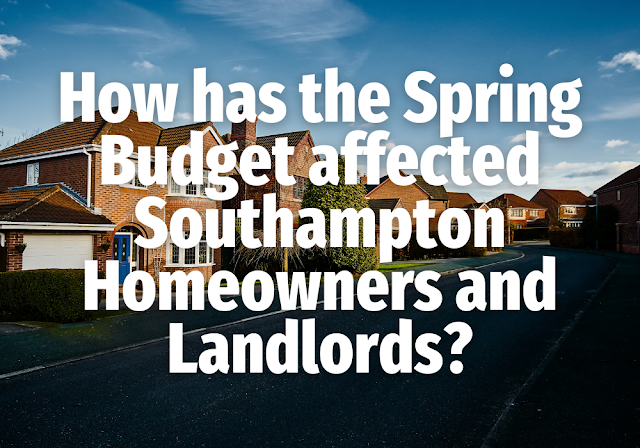As a practised estate and letting agent based in Southampton, I like to monitor the Southampton property market, compare it to the UK property market, and then share it with Southampton homeowners and landlords.
For February 2024, the UK property market has seen a continuation of the solid start in the first month of the year. Therefore, in this article, I want to see if that national trend mirrors or differs from the local market in Southampton.
In the first nine weeks of 2024 (up to the 3rd March 2024), the UK property market recorded 200,823 homes sold subject to contract (stc). This figure is 11.5% higher than the first nine weeks in 2023, where only 180,748 properties were sold stc.
It gets even more interesting when I compare it with two other time frames. Firstly, the average for 2017/18/19 combined for the first nine weeks is 185,192 properties. Secondly, for the first nine weeks of 2020, when we were experiencing the ‘Boris Bounce’, the number of house sales was 206,956, which is only 3% more than this year!
What about national house prices?
The average price of the property sold stc in the first nine weeks of 2023 was £343,690 with an average of £325/sq.ft.
In 2024, the average sale agreed price was almost identical at £348,414, yet the average pound per square foot was slightly higher at £335/sq.ft.
Such a surge in the property market demands a deeper analysis to understand the underlying factors and what they might mean for local markets, such as Southampton.
Key reasons why the UK property market is doing so well.
Decrease in Mortgage Rates: A key driver for the heightened activity within the property mortgage industry is the drop in mortgage rates. This change has made property ownership more accessible to a broader population, increasing property sales.
Increase in Salaries: The escalation in average earnings has been pivotal, too. With increased income, people are more likely to invest in property, which is considered a stable and profitable investment.
Increase in Rents: The average rent in the last two years in the UK has gone from £1,405 per calendar month to £1,797 per calendar month, making it cheaper to buy than rent on many occasions.
Low Unemployment Figures: A robust employment market coupled with low unemployment figures has boosted confidence among individuals, prompting them to undertake significant life choices like purchasing a house.
Other Influences: Additional elements also contribute, including shifts in demographic trends, changes in housing preferences following the pandemic, and government policies that might have encouraged the buying of properties.
Southampton’s property market: A comparison.
Now, I turn my attention to Southampton. Understanding that local markets can behave differently from national trends is vital. (Southampton being SO14-SO19).
In the first nine weeks of 2023 in the Southampton area, there were 717 sales agreed (sold stc), and in comparison, in the first nine weeks of 2024, there were 811 sales agreed in the Southampton area (sold stc).
This is a 13.1% increase inSouthampton home sales year-to-date
So, it is slightly better than the national picture, yet it is still very early in the year so things could change. Before diving deeper into this, I wanted to see what had happened in the first nine weeks of the year in the Southampton property market in 2024 and how it compared to 2023.
The average price of the property agreed on a sale (i.e. sold stc) in the first nine weeks of 2023 in Southampton was £268,057 with an average of £314/sq.ft.
In 2024, the average sale agreed price on the properties sold (stc) in the first nine weeks was £272,415, with an average of £315/sq.ft.
The future of the Southampton property market.
Moving forward, the UK property scene in 2024 holds considerable promise. Yet, for property owners and landlords in Southampton, it’s vital to grasp the intricacies of the local market. The focus should be on more than just national movements but also how these trends meld with local and regional dynamics.
As an expert, I urge all Southampton property stakeholders to seek advice tailored to their needs. Knowing the present market value of your property and the strategies for manoeuvring through the 2024 market could be crucial for well-informed decision-making.
Despite a solid kick-off to 2024 for the UK property sector, diving deep into the specifics of the Southampton market is essential to identify both opportunities and potential hurdles. I offer specialised knowledge and advice for Southampton property owners that align with our distinctive market conditions. Whether you’re a homeowner contemplating a sale or a landlord considering expanding or downsizing your portfolio, a deep understanding of Southampton’s property landscape is critical to strategic planning.
It is essential to recognise that the Southampton property market is ever evolving, and national trends may only sometimes directly reflect local realities. As we progress through 2024, keeping abreast of market changes and adapting accordingly will be vital for any successful property deal. I create lots of content about the Southampton property market, just like the article you are reading now, so if you want to receive them all, please contact the office, and I’ll send them to you.
Should you wish to gauge your standing in the Southampton property market or have questions about potential investments, don’t hesitate to reach out to me on 023 8001 8222. I’m here to assist with my expertise and detailed understanding of Southampton’s market, guiding you through these dynamic times in our local property scene.
 You can always tell when someone is really interested in buying your home by the number of questions they ask.
You can always tell when someone is really interested in buying your home by the number of questions they ask.








